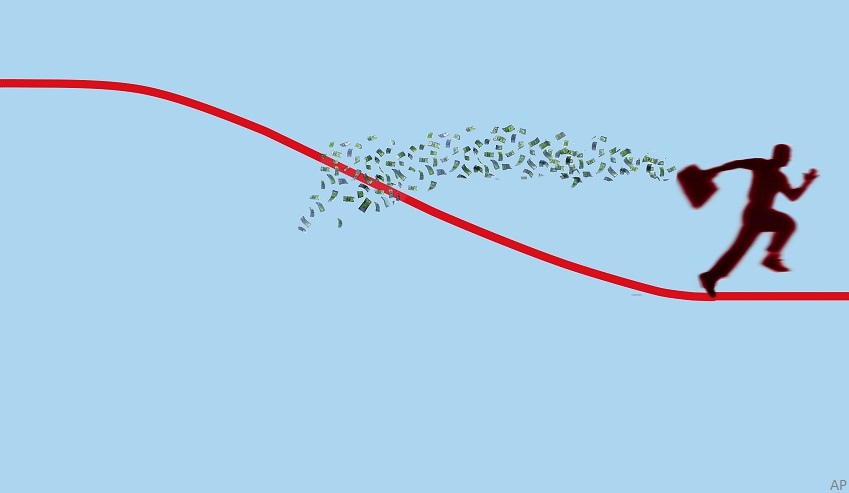
Russia’s invasion of Ukraine is likely to delay the progress on emissions cuts needed to forestall the worst effects of global warming, observers say. The need for those cuts was underscored today by the most recent installment of a landmark United Nations Report that showed the risks of global warming are higher than previously thought.
The report from the U.N. Intergovernmental Panel on Climate Change says the world will probably reach 1.5 degrees Celsius of warming within 20 years. The Paris agreement on climate change has a goal limiting global warming to below 2 degrees, and preferably 1.5 degrees, compared with pre-industrial levels. To achieve this goal, countries need to reach so-called net zero emissions by 2050. The IPCC report says the window to adapt to climate change is “brief and rapidly closing,” with rising seas threatening infrastructure and people living on coasts.
The Ukraine invasion has sent the price of oil climbing. That could make fossil fuels more attractive to investors and delay the momentum toward net zero.
“From an investor perspective, energy and energy security will be a big deal for the next six to 24 months,” says Michael Jantzi, founder of Sustainalytics. “The focus [on net zero] will wane and commitments will wane, and let’s say if we lose 12 to 24 months of resolve and action, it puts those short-term targets at risk.”
Europe, which has promoted sustainable finance and been at the forefront of regulations around sustainable investing, will be distracted as it refocuses on energy security, says Jantzi.
The invasion and its consequences for the financial markets may also serve to chill interest in sustainable investing, which has pushed companies to reduce emissions as part of addressing environmental and systemic risk.
Now, the prospect of slowing performance is before ESG investors, many of whom bought their funds in the past couple of years amid the vogue for sustainable investing. The jump in energy prices stokes already rising inflation. Sustainable funds, meanwhile, typically specialize in growth stocks that are pricier and require a longer time frame to pay off. In such an environment, corporate profits could come under pressure. Companies may also take a hard look at their ESG spending--on plans to reduce emissions, or improve employee diversity--as they refocus on rising costs and a tattered supply chain.
“This is the worst kind of market for ESG investors,” says Amy Domini, founder of Domini Impact Investments. Sustainable funds underperformed the market when the U.S. invaded Afghanistan in 2001 and Iraq in 2003, Domini observes, because “the only stocks that reliably rally are fossil fuels and armament companies. If you miss out on the rally and don’t miss out on the rest of it, it’s hard for the portfolios.”
Geopolitical issues are infrequently on the radar of responsible investors and this is the first big opportunity for them to articulate how they approach these issues. A refugee crisis will inevitably ensue, raising concerns about human rights violations. Then there’s the issue of holding Russian securities. Already, European pension funds are clipping exposure to Russia. But logically, that will raise questions about whether investors should be in China, which supports Russia’s claim to Ukraine and claims Taiwan.
One place that is holding up well: Renewables. “Renewables may do well when there's volatility in the energy markets because there’s less certainty about other sources of energy,” says Joe Keefe, CEO of Pax World Funds, a line of fossil-fuel-free funds.
Says Shawn Kravetz, founder of Esplanade Capital, which invests heavily in renewables: “I don’t think [the invasion] will set net zero back. The climate crisis isn’t going away. If anything, this underscores the climate crisis with natural gas prices skyrocketing. We’re going to see more dirty fuels used for basic energy needs.”
For ESG investors, it may be time to look at adding value funds. There are fewer of these than growth funds, but they can help reduce volatility over the long term, says Jon Hale, director of sustainability research for the Americas at Morningstar.
The invasion will require sustainable investors to pressure companies, more than ever, through proxy voting and engagement, to stick to their net-zero commitments. “We can’t allow what Russia is doing to let us take our eyes off the ball,” says Jantzi.




















